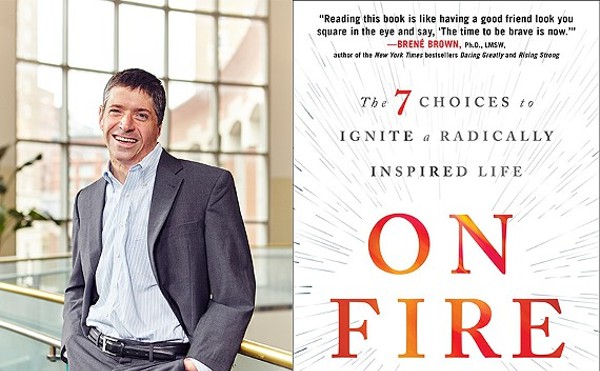The trailer for Generation Wealth might give the impression that it's two hours of excessive greed and vulgar capitalism at its worst, an update of Lifestyles of the Rich and Famous for a crasser, more decadent time. (The film even briefly shows Robin Leach — who knew he was still alive and latching on to any free limo ride he could get?) Even if Lauren Greenfield's film was entirely critical of her Botox-addled, bling-heavy subjects, it might still seem like more than any person sensible enough to have spent the last eleven years Keeping Away From the Kardashians could take.
Yet Generation Wealth is a far more thoughtful film than you might expect, and probably a more insightful one than its interviewees knew they were making. Drawing upon her own 30-year career as a photographer, Greenfield retraces the steps of her earlier work, much of it exploring the themes of self-image and wealth, to create a wide-ranging meditation on consumerism, success and personal happiness.
Greenfield's subjects include a group that she first photographed in the 1990s as students at an affluent Southern California high school (Kim Kardashian was a classmate). Some, like the aspiring teen rapper lording over a table full of dollar bills in a music video, are embarrassed by their earlier shallowness; other merely show that obnoxious teenagers in 1991 may well become obnoxious adults. A fellow student from Greenfield's Harvard years turned hedge-fund manager turned fugitive in Germany is reflective, but not entirely remorseful about his history. "Does Harvard Business School teach you to be a good person?" he asks. The question is entirely rhetorical.
Along with the spoiled teens and jaded businessmen who take wealth for granted, Greenfield profiles those whose search for money and fame is confined to the bottom of the economic barrel. For most of these, the easy way up has something to do with sex. Greenfield visits Atlanta strippers in a club where patrons pay to throw money at them and porn star Kacey Jordan, whose career highlight is a $30,000 paycheck from Charlie Sheen. There's a weird, depressing interlude with a 21-year-old man who works with his mother, a Las Vegas hostess (not, he assures us, a madam), and, most disturbingly, a six-year-old in rural Arkansas embracing her inner Anna Nicole Smith on the pageant circuit.
Generation Wealth may sound like a freak show, a Mondo Cane for an era of post-Gordon Gekko ethics and reality-TV exhibitionism, but that's just the glittery surface. Greenfield's subject isn't just conspicuous consumption. She's interested in how we reached this intersection of avarice and bad taste and what it says about us. Using her own life and interviews with her family, she creates an autobiographical essay not just about affluence and extravagance, but about family matters and peer pressure, about self-identity and values in a consumer-driven culture. The extravagant people and things she photographs provide an extraordinary picture of a society headed for a hangover, but Greenfield is able to step back and examine her own identification with these things over decades of work. No matter how unusual the answers she receives, her central question is this: What do people do to fill their lives?
By the end of the film, she's able to resolve her personal views. Some of the people she's filmed over the years have outgrown their obsession with wealth or seen the quest for fame and possessions turn disappointing. Some are amused by the shallowness of their past selves; others are still trying to recover from it. Others, like the workaholic investment counselor who has a child through a surrogate pregnancy, seem to have simply switched from their old obsession with money to new ones (for the investment counselor, motherhood has simply become a different but no less demanding career). Greenfield doesn't judge her subjects, but she seems to hope they will recognize their excesses. The hunger for bigger, better and more gold-plated things won't go away, but Generation Wealth exposes it as an unfulfilling diet.






